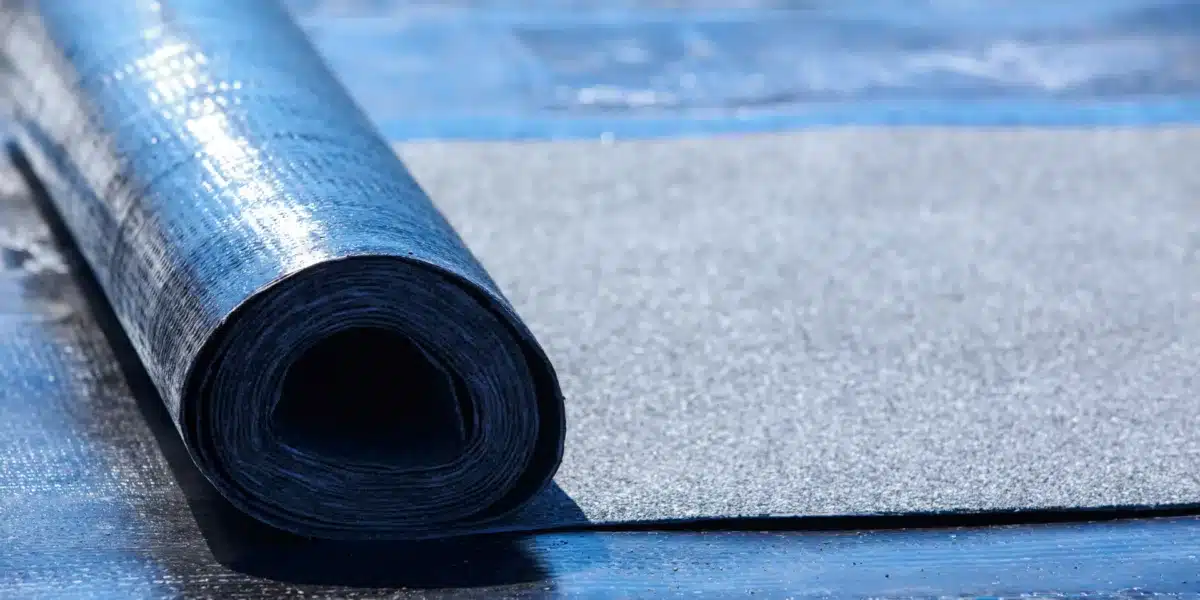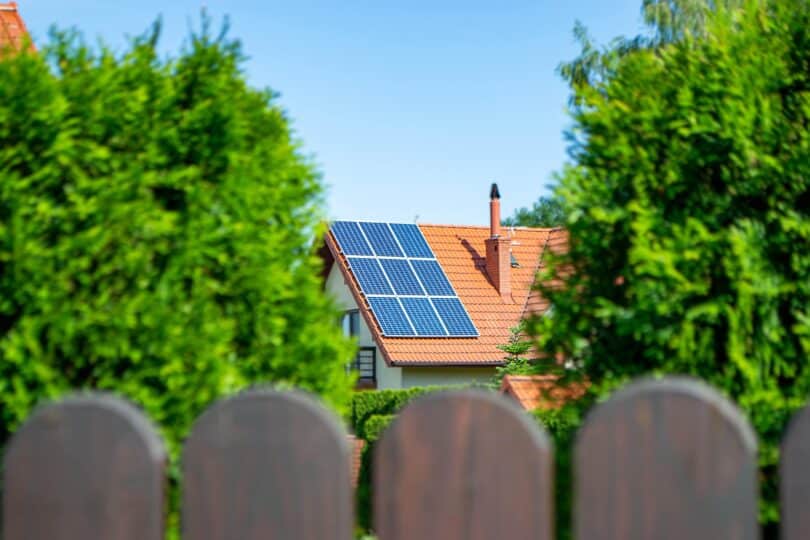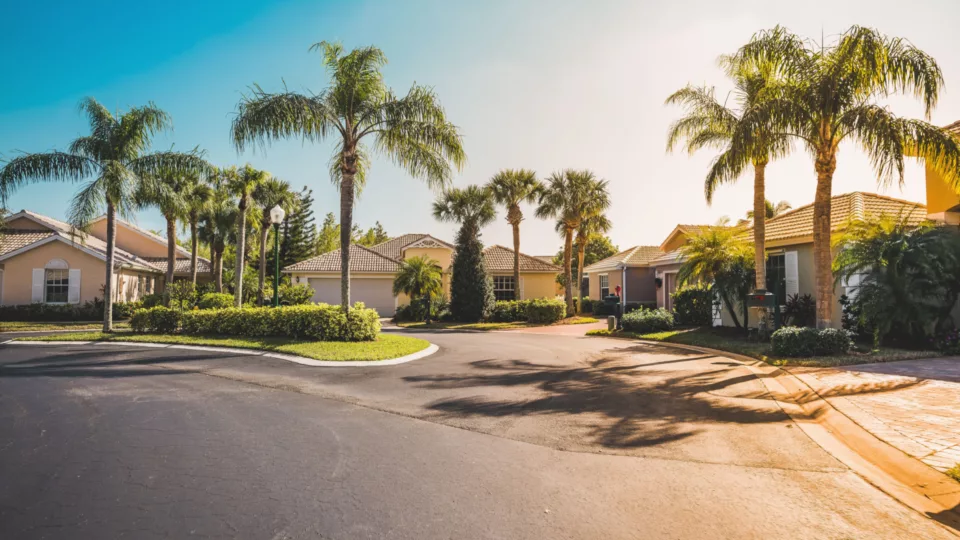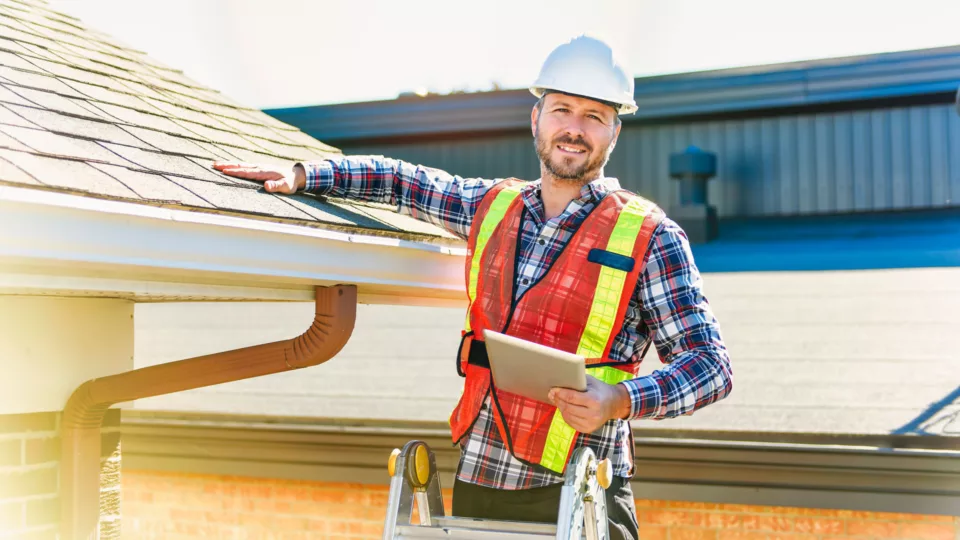In This Article
Flat roofs are popular for both commercial and residential structures in Florida. And while there are plenty of great, durable flat roofing systems available in Florida, sooner or later all of them need replacing. When that happens, it helps to know about flat roof installation costs and what options you have for your new flat roof.
We’re Classic Roofing and Construction, and we’ve been doing flat roof replacements for over two decades right here in sunny Florida. That’s why you can trust our expert advice on everything you need to know about getting a new flat roof in Florida. So let’s start with the big question: What kinds of flat roofing material should you choose?
Types of Flat Roof Replacements
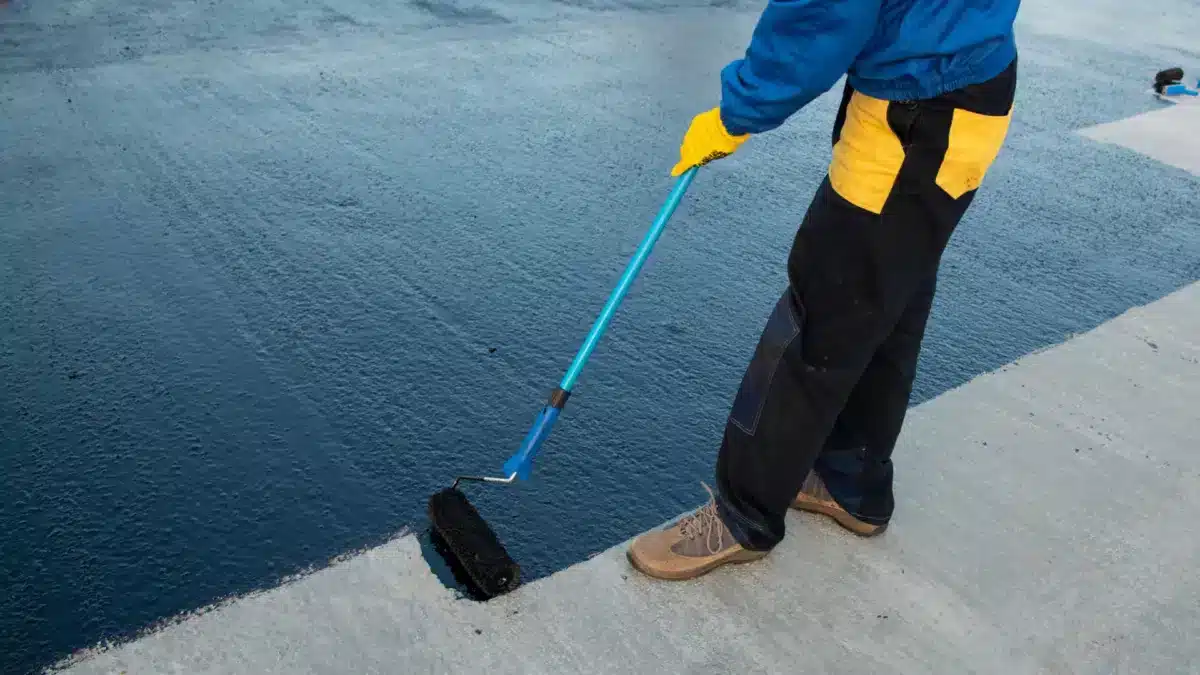
In Florida, there are three main types of flat roofs that people choose: TPO, EPDM, and modified bitumen. There are other options like built-up roofing, but these three are new, favored flat roofing technologies.
When you need a new flat roof installation, it can feel impossible to choose between the different flat roofing materials. So let’s take a look at each and see what they can offer you!
TPO Roofing
Thermoplastic polyolefin (TPO) is a rubberized roofing membrane. This means that it’s applied as a thin protective sheet across your roof. And while that may not sound like a great protective system, it actually offers perfect coverage for Florida.
In Florida, the sun, wind, and rain are your biggest roofing problems. And TPO has the strength and staying power to handle every single one.
For example, TPO is white, so it reflects sunlight away from the building. Not only does this limit damage to your roof from UV rays, but it can also lower your monthly energy bill by keeping your structure cooler.
And unlike shingle roofs, TPO roofs aren’t vulnerable to wind damage because there’s very little that the wind can get under to remove from your roof. Instead, the biggest danger to a rubber flat roof like this is when high winds make storm debris that can puncture your membrane. For this reason, it’s smart to inspect your flat roof after major storms.
Finally, when it comes to water, TPO is unbeatable. It creates a waterproof membrane on top of your flat roof to completely block out all incoming water and keep your property safe and dry.
All of this comes together with a lifespan between 20 and 30 years. So if you’re in need of a flat roof installation, TPO is definitely worth considering.
EPDM Roofing
Ethylene propylene diene terpolymer, or EPDM, has a lot of similarities with TPO. For instance, they’re both rubberized roofing membranes that create a water-tight seal around your flat roof. But in choosing a material for your flat roof installation, which one is better?
Well, that depends on what you mean by better. On the one hand, EPDM roofing is black, which means that it attracts rather than deflects heat, thus increasing energy bills. On the other hand, EPDM being black also helps it cover dirt, which makes it popular with hospitals and other commercial structures where the roof is visible from inside.
Despite the increased UV rays, EPDM roofing stays strong. In fact, a properly installed EPDM flat roof can last for up to 50 years, giving it by far the best lifespan of any flat roofing material.
To get that long lifespan, though, you will need proper installation and regular maintenance for your roof. That’s why it pays to choose Florida’s top flat roof installation company and make sure the job is done right the first time!
Modified Bitumen Roofing
Unlike the other flat roofing materials here, modified bitumen (or mod bit) is not a rubber roofing membrane. Instead, it’s made of asphalt combined with rubber and reinforced with a fiberglass base. When it all comes together, the end result is a more rugged roofing system than any rubber flat roof.
And that has pros and cons. For the pros, modified bitumen flat roofs are much better able to withstand punctures and other damages from storm debris. This means it’s much less likely that a branch falling on your roof will create an issue since the asphalt can easily handle impacts like this.
On the other hand, modified bitumen is not as water resistant as TPO or EPDM. This means that if water gets trapped on your roof, it will have an easier time getting past your roof and into your decking. To make sure this doesn’t happen, your best recourse is to choose a reliable crew for your flat roof installation since most local building codes usually require at least a quarter of an inch slope on flat roofs.
Modified bitumen lasts for about 20 years on average. But during those 20 years, your roof will have very few maintenance requirements since these roofs are so durable and damage-resistant. This makes modified bitumen a very compelling option for many Floridians!
How Much Does Flat Roof Installation Cost?
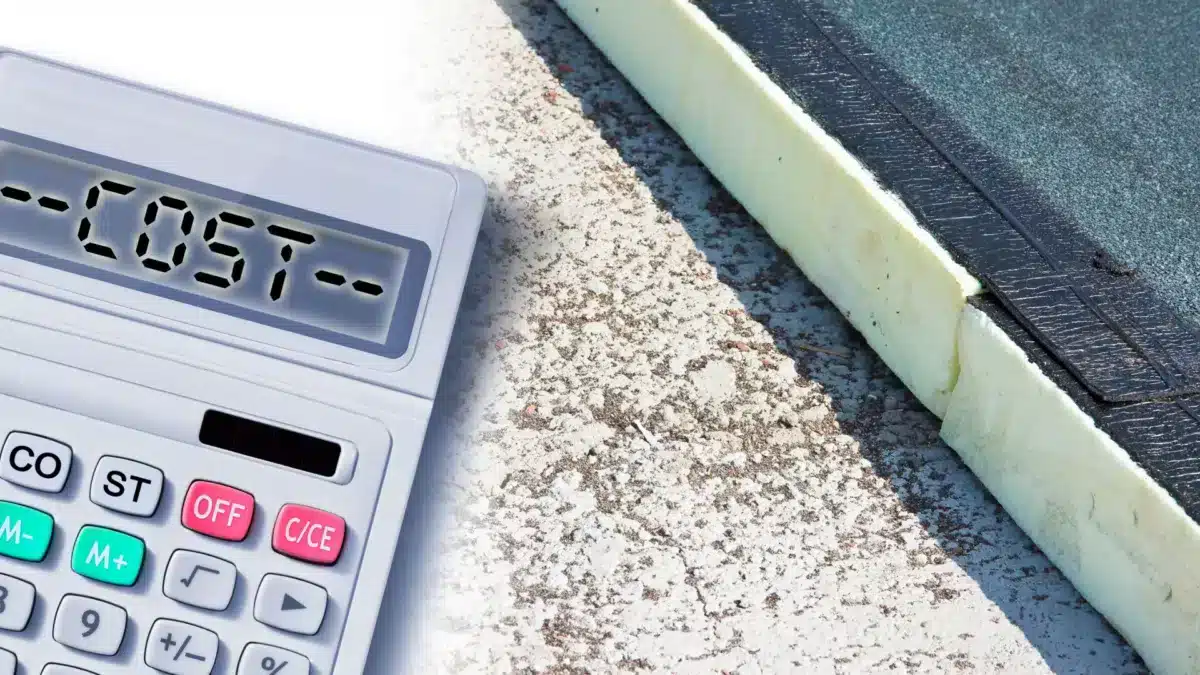
Of course, nobody can know what flat roofing material to choose without knowing the price. While we don’t suggest that you let price be the only factor in your flat roof installation, we understand that everyone has a budget.
With that in mind, let’s look at how much a flat roof installation could cost you depending on which roofing material you choose:
- TPO Price: On average, TPO can cost anywhere from eight to 20 dollars per square foot. This large variation in price is largely to do with the fluctuating cost of the materials used to make TPO roofing.
- EPDM Price: EPDM pricing compares closely with TPO, but it does tend to be a bit less expensive at between six and 18 dollars per square foot. Keep in mind that if you choose EPDM, the lower roofing costs are somewhat offset by the higher energy bill that comes with a black flat roof.
- Modified Bitumen Price: Compared to a rubber roof, modified bitumen installation is much cheaper. At between four and eight dollars per square foot, mod bit is an excellent choice if you’re on a tight budget and need a flat roof replacement right now.
Whichever roofing material you pick, your total flat roof installation cost will depend on the size of your roof, the number of penetrations in your roof, and other unique roofing factors. That’s why the only way to get a hard, reliable number is to get a free roofing estimate.
Get Your Free Flat Roofing Installation Estimate
At Classic, we know that getting you a clear and thorough flat roofing estimate is essential to helping you make an informed decision about your new roof. That’s why we make the entire process simple and easy, starting with scheduling your free roofing estimate.
Once we’ve completed our roof inspection and talked about what you want for your flat roof installation, we’ll prepare an estimate with any and all options that you’re considering. This way, you’ll get to know exactly how much everything costs and what you’re paying for!
If you’re considering a flat roof installation, make things easy for yourself and choose Classic. We’ve got great standing in our local community, and with 20 years of experience, you know that we’re still here because we do right by our customers. Get your free flat roofing estimate and see how easy getting a new flat roof can be when you do things the Classic way.

